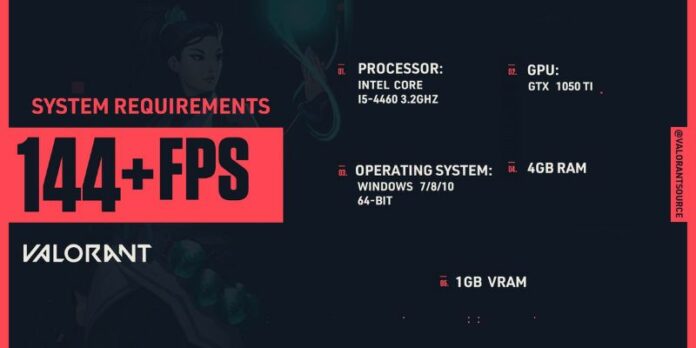When gearing up to dive into Valorant, having the proper setup can make all the difference in your gaming experience. While Valorant isn’t overly demanding on your PC, having a modern GPU can significantly enhance your frames per second (fps) and overall gameplay smoothness in Riot’s popular free-to-play hero shooter.
Developed by Riot Games and launched in June 2020, Valorant has seen rapid growth and continuous improvement with each patch. These updates have enhanced gameplay and raised the bar on the hardware needed to run the game seamlessly.
To avoid frustrating crashes and ensure uninterrupted play, it’s crucial to understand the minimum system requirements your PC or laptop should meet to handle Valorant. Before hitting that download button, let’s delve into what you need to know!
Read More : Unlocking the Secrets of Valorant Rank Distribution in 2024
Valorant Requirements System in 2024
Are you wondering if your rig can handle Valorant? Fear not, as Riot Games has laid out the system specs for optimal gameplay. While you can scrape by with the minimum requirements, aiming for higher frame rates and sharper graphics will elevate your Valorant experience. Here’s the lowdown:
For steady performance, aim for:
Minimum Specs (30 FPS):
- CPU: Intel Core 2 Duo E8400 (Intel), Athlon 200GE (AMD)
- GPU: Intel HD 4000, Radeon R5 200
- RAM: 4GB (1GB VRAM required for discrete graphics)
- OS: Windows 10 (Build 19041+) 64-bit, Windows 11 64-bit
Note: While this setup can handle the game, 30 FPS might not be optimal for competitive play.
For smoother gameplay, opt for:
Recommended Specs (60 FPS):
- CPU: Intel i3-4150, AMD Ryzen 3 1200
- GPU: GeForce GT 730, AMD Radeon R7 240
- RAM: 4GB (1GB VRAM required for discrete graphics)
- OS: Windows 10 (Build 19041+) 64-bit, Windows 11 64-bit
Note: These specs ensure a more satisfying gaming experience with 60 FPS.
For top-tier performance, consider:
High-End Specs (144+ FPS):
- CPU: Intel i5-9400F 2.90GHz (Intel), Ryzen 5 2600X (AMD)
- GPU: GTX 1050 Ti, Radeon R7 370
Whether you’re aiming for the competitive edge or want your agents to look sharp, having the proper setup can make all the difference in Valorant.
Read More : Valorant Player Count Tracker 2024: How Many People Play Valorant?
How Much GB Size Does Valorant Need?
How much space does Valorant takes up on your rig? You’ll need about 42.3 GB of storage on your SSD or HDD. That breaks down to roughly 41.9 GB for the game and around 400 MB for the Riot Client.
Are you now aiming for that smooth 60fps gameplay? You’ll want to stick to Valorant’s recommended specs. The good news is that you don’t need to break the bank on a fancy GPU. Riot assures us that even an Nvidia GeForce GT 730 or AMD Radeon R7 240 with just 1GB VRAM can hit that sweet spot.
But if you’re eyeing those ultra settings and aiming for 144fps, consider picking up something like the GTX 1050 Ti. It will elevate your Valorant experience and unlock Nvidia Reflex—a game-changer for reducing hardware latency and ensuring those critical frames never drop.
Unfortunately, Nvidia DLSS and AMD FSR aren’t supported in Valorant yet, so if you’re looking for a performance boost, tweaking your in-game settings is your best bet.
Storage-wise, make sure you’ve got at least 30GB free, though it’s a 10GB jump from the game’s launch size. While Riot doesn’t specify SSD advantages, investing in a top-tier SSD could pay off in the long run for your gaming setup.
Those are some things about the Valorant requirements system. We hope this article can be a reference for you to play Valorant. To maximize it further, you can top up Valorant only at UniPin right now!

